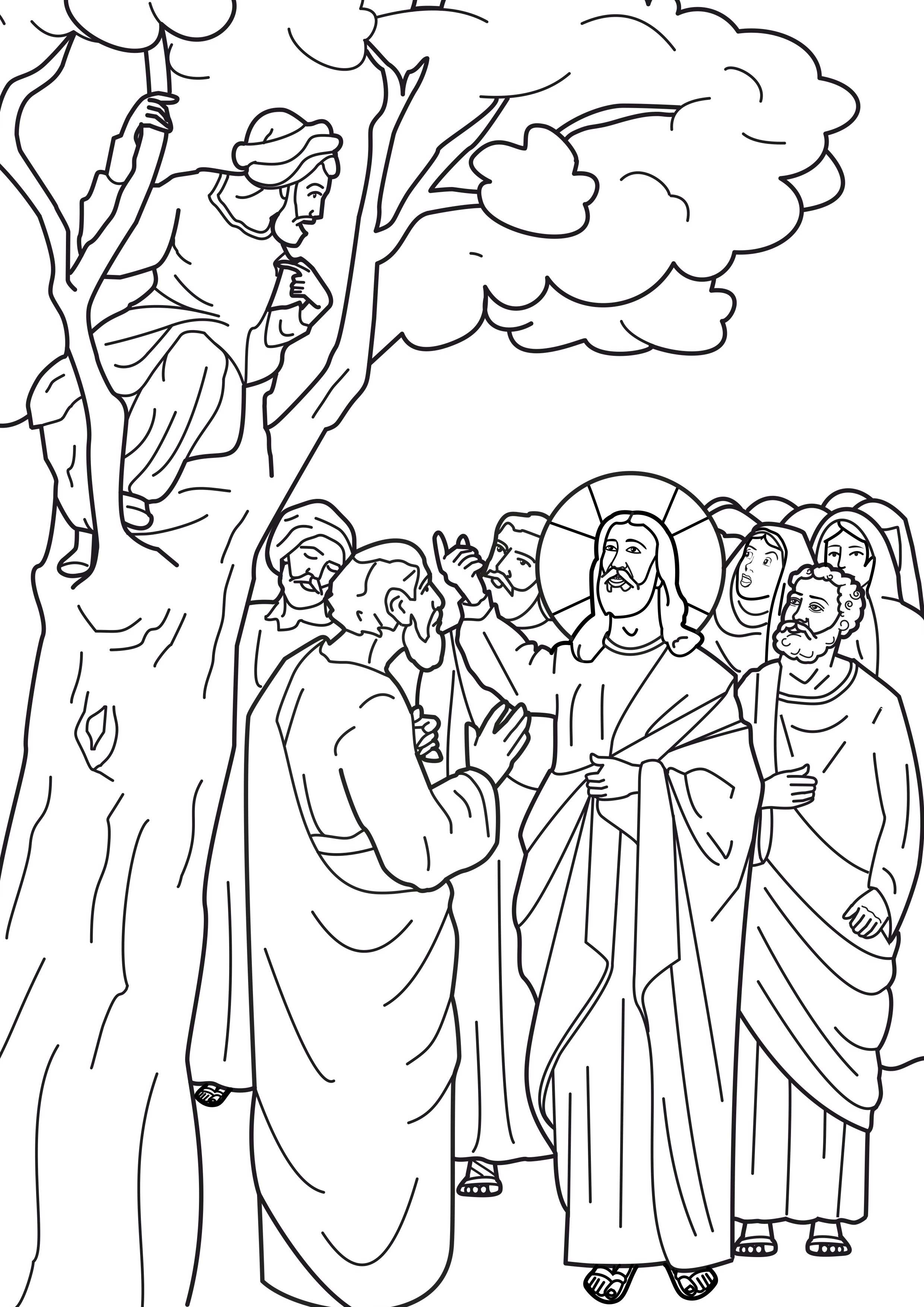Image: Coloring: God Jesus calls Zacchaeus \u0635\u0648\u0631\u0629 \u062a\u0644\u0648\u064a\u0646 \u064a\u0633\u0648\u0639 \u064a\u062f\u0639\u0648 \u0632\u0643\u0627 \u0627\u0644\u0639\u0634\u0627\u0631 \u0645\u0646 \u0641\u0648\u0642 \u0627\u0644\u062c\u0645\u064a\u0632\u0629
Paint literature and coloring literature emerged in america within the "democratization of fine art" process, encouraged by some lectures by British isles designer Joshua Reynolds, and the works of Swiss educator Johann Heinrich Pestalozzi and his scholar Friedrich Fr?bel. Many teachers figured all, no matter record, students stood to reap the benefits of art education as a way of boosting their conceptual knowledge of the tangible, expanding their cognitive expertise, and bettering skills that might be useful to find an occupation, as well for the children's religious edification.[1] The McLoughlin Brothers are acknowledged as the inventors of the color booklet, when, in the 1880s, they produced THE TINY People' Painting Publication, in cooperation with Kate Greenaway. They sustained to publish color books before 1920s, when the McLoughlin Brothers became area of the Milton Bradley Company.

![]()
![]()
![]()

0 Response to "Image: Coloring: God Jesus calls Zacchaeus \u0635\u0648\u0631\u0629 \u062a\u0644\u0648\u064a\u0646 \u064a\u0633\u0648\u0639 \u064a\u062f\u0639\u0648 \u0632\u0643\u0627 \u0627\u0644\u0639\u0634\u0627\u0631 \u0645\u0646 \u0641\u0648\u0642 \u0627\u0644\u062c\u0645\u064a\u0632\u0629"
Post a Comment